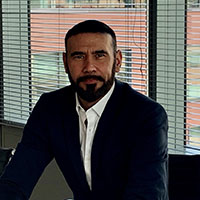Mood of the meeting
With twin themes of science and future generations, the daily agenda is tackling the core fundamentals of climate change. There were eye-catching protests against human rights abuses and the dominance of the fossil fuel lobby.
Protestors wore white in solidarity with killed or imprisoned activists including Alaa Abdel Fattah, a British-Egyptian pro-democracy campaigner on hunger strike in an Egyptian prison. They also demanded the expulsion of the 636 oil and gas lobbyists at COP27 – a record number and up 25% from last year.
Other lobbyists promoted nuclear as a cheap, carbon-free alternative, whilst youth-led protests were calling for climate justice and a shared enthusiasm for loss and damage funding.
On a brighter note, Iraq and Lebanon pledged to work with Israel on climate issues, despite having no diplomatic relations.
The substance
The biggest progress (or lack of it) from a COP summit is found in the ‘cover text’. The Egyptian officials running COP27 have announced that delegates will start hammering out the ‘cover decision’ on Saturday. Don’t be surprised if negotiations go down to the wire like last year – COP27 began hours late because participants were still haggling over what should be on the agenda.
Smaller measures trickle out piecemeal. Norway postponed by four years an investment decision due in December on the Wisting project in the Arctic, which would be the world’s most northerly oil field.
On Science specifically, the importance of data and science in driving and delivering implementation by policymakers was reiterated and further stated by COP27 President H.E.Sameh Shoukry.
Other highlights included, Egypt's launch of its first Vulnerability Assessment Map and the One Health Initiative which sets out [Egypt's] ambition to improve the health of all -- human and animal - in the face of the impact of climate change.
It is hoped that One Health will build on lessons learned from the COVID-19 pandemic where statistically, lower- and middle-income countries felt the harshest impact of the disease. Egypt's One Health Action Plan will lay out a route map for better mitigation to confront this climate change health crisis.
In other news, the Climate Action Tracker's latest update on the global warming projection notes that the world is currently is heading for 2.4°C of warming against 2030 targets. This figure is by and large similar to the target disclosed at COP26 in Glasgow thus highlighting that very little progress has been made in that time and that governments have failed to deliver the "urgent emissions cuts that were promised to keep warming to 1.5°C.
The lack of progress can no doubt be attributed to lack of energy security produced as a result of the Russian – Ukrainian War and as a result, according to the Climate Action Tracker “The goldrush for gas continues and is counterproductive to the Paris Agreement.”
In terms of youth and future generations, this is the first COP to have a platform dedicated to children and youth so all eyes were on what was going to be covered.
The UNFCCC's official youth constituency shared a "Global Youth Statement" which was developed for COP27 and was only finalised last week.
The statement was a collaboration of future generations from 149 nations.
Key takeaways from the statement:
- We need to commit to a dedicated finance facility for loss and damage to support those most affected by increasingly destructive impacts of climate change.
- Post pandemic, now is the time to enhance climate and development goals.
- We need to look beyond geopolitics to facilitate international cooperation and dialogue. The global energy crisis was given as an example of how the system is broken.
Day 5’s agenda
As countries commemorate the end of the First World War, 11th November is Decarbonisation Day in Sharm El-Sheikh. The official agenda is largely sector-based, with sessions on steel, cement and fertiliser as well as oil and gas.
All of that could be eclipsed by the arrival of Joe Biden. Given COP27’s emphasis on demands from low-income nations for financial support, the president’s willingness and ability to fund international action could make or break the summit.
Acronym of the Day
CCUS is on Day 5’s agenda. The carbon capture and storage (CCS) concept is relatively well known, though so far real-life examples haven’t been extensive enough to make a big difference. Carbon capture and utilisation (CCU) is a variation on the theme, turning carbon into valuable fuels or commodities. CCUS covers both.
















